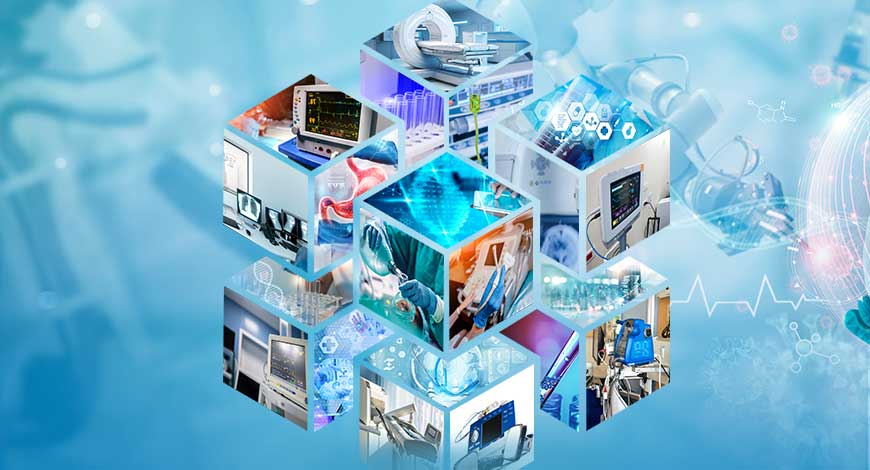Industry
A decade of transformation ahead!

The MedTech industry stands at the beginning of a transformative decade, poised to undergo unprecedented growth and evolution.
The MedTech sector, already a multi-billion-dollar manufacturing powerhouse, is set to undergo a monumental transformation in the coming decade. Analysts are eagerly anticipating the emergence of ground-breaking medical and life science technologies that will redefine treatment pathways and revolutionize healthcare delivery.
Workforce shortages, escalating demands, and pressure to deliver timely and efficient care has never been greater. They are driving the healthcare organizations to innovation, a solution to enhance the effectiveness and affordability of treatments while optimizing patient outcomes.
While artificial intelligence (AI) captured the spotlight in 2023, other technologies such as wearable devices, Internet of Things (IoT), and telemedicine have also made significant contributions to advancing healthcare. The year 2024 promises to witness a more widespread and effective integration of these cutting-edge technologies across various healthcare practices.
The healthcare industry’s slow adoption of innovation with barriers as regulatory hurdles and data collection are gradually being overcome. We can now expect to see the latest technologies being deployed more readily and efficiently, ushering in a new era of healthcare innovation and accessibility.
The industry is seeing cybersecurity as a critical challenge. With 2024 marking the first full year of FDA’s heightened focus and stringent guidance on cybersecurity for medical devices, companies are acutely aware of the increased requirements and liabilities. Failure to meet these evolving standards could result in costly penalties, reputational damage, and significant delays in product launches.
The healthcare industry is on the brink of transformative change, and these are the six trends that are expected to be at the forefront of this transition.
AI is here to stay. In 2023, the healthcare industry witnessed a significant focus on generative AI, particularly in the deployment of chatbots and virtual assistants aimed at enhancing patient care through data analysis and personalized treatment plans. These advancements are expected to have far-reaching implications, including increased productivity, accuracy, cost reduction, and alleviation of staff shortages. As AI continues to evolve rapidly, it is anticipated that its utilization will become more widespread across various healthcare services, leading to enhanced data-driven decision-making. Consequently, healthcare staff will undergo more training to leverage AI effectively and safely.
The rise of wearable devices. There is a growing trend of patient monitoring devices and sensors being tested and implemented in medical settings. These devices track and analyze real-time patient data, including heart rates, sleeping patterns, and blood pressure, offering more accurate insights into patient well-being. Patients benefit from this information by being able to self-monitor and make proactive lifestyle adjustments, leading to increased independence. When combined with AI capabilities, these devices enable faster and more accurate data collection, ultimately saving time, money, and resources.
Personalized approach. The integration of AI and medical technology enable healthcare services to provide increasingly personalized treatment plans tailored to each patient’s unique needs. Precision medicine, which considers differences in genes, environments, and lifestyles, will lead to more effective treatments and easier determination of medication efficacy and adverse effects. 2024 will witness a shift toward more patient-centric treatments as these technologies become further integrated into care pathways.
Advancing telemedicine. Telemedicine continues to play a crucial role in healthcare by supporting the delivery of non-urgent care and addressing backlogs and waiting lists. The adoption of a hybrid model combining in-person visits with online appointments provides flexibility and convenience for both patients and healthcare professionals.
The fight against cybercrime. Healthcare organizations face significant risks to safety and security from cyber-attacks, that can compromise patient data and lead to reputational and financial damage. With the rise of medical devices and telemedicine, there is an increase in entry points for cybercriminals, making organizations more vulnerable. Consequently, healthcare organizations are expected to increase investment in cyber defenses to mitigate these threats.
Prioritizing sustainability. The healthcare industry acknowledges the need for greater sustainability due to the environmental impact of practices such as the use of single-use plastics and high energy consumption. In 2024, there will be increasing pressure on manufacturers to adopt more environmentally conscious solutions, including reducing plastic dependency, embracing energy-efficient technologies, and utilizing telemedicine to minimize travel to hospitals.
A brighter future
2024 will be another progressive year for the healthcare industry, with further challenges and pressures to navigate. Striving for better patient outcomes requires the ongoing assessment and improvement of current methods of care, which is time-consuming but necessary. Healthcare systems should embrace innovation to address any gaps or unmet needs in care to improve patient outcomes and manage the increasing demands of treating an aging population. It will be another challenging year for the industry, but one with many promising solutions offering long-term and effective improvements.














